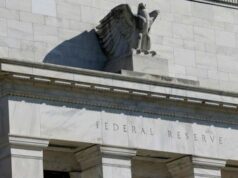Private sector support key to Team Philippines’ success at Tokyo Games

By Michael Angelo S. Murillo, Senior Reporter
TEAM PHILIPPINES ended the Tokyo 2020 Olympic Games with a record haul of four medals, including the country’s first-ever gold won by weightlifter Hidilyn F. Diaz.
Boxers Nesthy A. Petecio and Carlo Paalam secured silver medals, while Eumir Felix D. Marcial added a bronze (Related story).
Francis Carlos B. Diaz, national team coach and dean of the University of the Philippines College of Human Kinetics, said the impressive showing of the 19-athlete Philippine contingent in Tokyo was not totally surprising, considering how things came together in the lead-up to the Olympic Games.
“Well, definitely this speaks volumes of our capacity in terms of sports performance at the elite level. The road was not easy for the Philippines but I think because of the positive things that happened in the previous years, this was the result of it,” he said in an interview with BusinessWorld.
Mr. Diaz, also the chef de mission of the country for the Tokyo Paralympic Games later this month, cited the partnership between the government and private institutions, the effort to give elite athletes access to international training and competitions, and provisions for athletes’ needs helped contribute to Team Philippines’ success.
“Private sector support was very critical,” Mr. Diaz said.
While the government did a good job in meeting the requirements of the national teams despite the limitations, Mr. Diaz said the partnerships that national sports associations were able to forge with private companies went a long way in preparing the athletes.
The MVP Sports Foundation led by top businessman Manuel V. Pangilinan was at the forefront of such a push, supporting in one form or another the majority of the athletes who competed in Tokyo, including Ms. Diaz.
“It started with the inherent talent of the athletes and was enhanced by the support given for their training. It really became results-oriented,” Mr. Diaz said.
The Philippine Sports Commission (PSC), as per data it provided, released some P2 billion since 2017 for the national team, which also covered the foreign exposure of the Olympians and those who vied for Olympic spots.
“Foreign exposure was a big help. I think the athletes’ confidence was enhanced because of that as they got to learn new things from training abroad and were able to gauge themselves against some of the best in their respective disciplines. With that, heading into the Olympics there is something that had them believing that they are in a good position to compete,” Mr. Diaz said.
Among those who trained abroad were Ms. Diaz (Taiwan and Malaysia), the Philippine boxing team (Thailand), gymnast Carlos H. Yulo (Japan) and Ernest John Obiena (Italy).
The UP dean said the conscious effort to widen the athletes’ preparation to include improved coaching and the hiring of sports nutritionists and psychologists, also helped immensely. Athletes also continue to prepare in “training bubbles” even during lockdowns.
Ms. Diaz, who bagged the gold medal, attested to this, thanking “Team HD” for helping prepare her for the competition.
“I think I was more prepared. I had a whole team behind me. Apart from my weightlifting coach, I have a strength and conditioning coach, a nutritionist and psychologist, and I even had yoga as part of my training. And that is thanks to the PSC, POC (Philippine Olympic Committee) and the private groups,” Ms. Diaz said in one of her interviews upon returning to the Philippines.
The same was true for Ms. Petecio, who like most in the boxing team trained under Australian coach Don Abnett and other Filipino coaches.
“He (Mr. Abnett) helped in my form as a boxer, pointing out the flaws in my mechanics and just working with me and my other coaches to develop my game,” Ms. Petecio shared in a press conference after she won silver.
The athletes’ determination and the “extrinsic motivation” given to them were contributing factors as well.
“The athletes waited for at least another year to compete in the Olympics and I think it gave added motivation for them to do well and represent the country the best way possible,” Mr. Diaz said.
“But the extrinsic motivation that we gave our athletes if they win and garner medals was something. The reward that the government and private sector is giving I’m sure inspired the athletes as well. It’s going to be life-changing. Look at Hidilyn, she looks like she just won the lotto,” he added.
For this Olympics, a gold is worth P33 million as the government will give P10 million under Republic Act 10699, or the National Athletes and Coaches Benefits and Incentives Act, while MVP Sports Foundation and San Miguel Corp. President Ramon S. Ang pledged P10 million each. Sportsman and 1-PACMAN party-list Rep. Michael L. Romero pledged to give P3 million for the gold medalist.
The same entities and individuals also pledged to give a combined P17 million for silver and P7 million for bronze. Other companies have promised to give free flights, house-and-lot, condominium units and even free milk tea to the Olympic medalists.
“So given all these, to say it again, our successful campaign is not surprising,” said Mr. Diaz.
“And the good thing about it is the prospects of even those who did not win are bright since most of them were young first-timers. Hidilyn took four cycles to win gold but these athletes already had it good in their first Olympics. So who knows, maybe in the next Olympics or after that, they get to win gold, too.”




